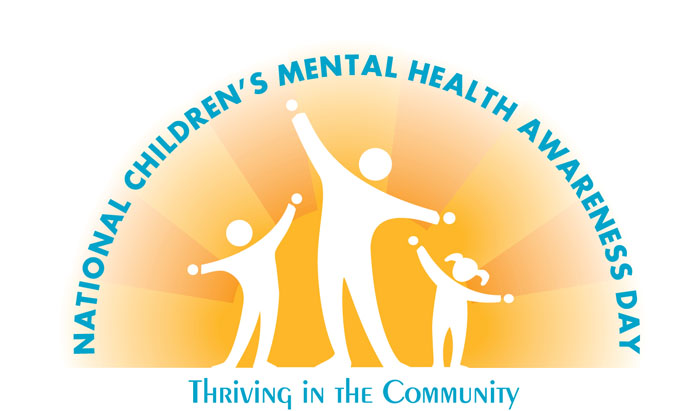The next essential thing you can do is develop and preserve a strong relationship with your child's teachers and with the school. If your child has been detected with a psychological or behavioral health issue, bring it to the school's attention and make certain they are involved in your treatment strategy.
If the school declines to work with you or isn't able to use anything in the way of support, it might be time to search for another school that much better matches your kid's needs. By bringing your pediatrician and your kid's instructors together, you can produce a comprehensive assistance system for your child.
Though the roadway might be difficult, your kid depends on you for love and support so do whatever you can to provide your child what they need to be successful and grow.
A U.S. Surgeon General report shows that one in 5 children and teenagers will deal with a considerable mental health condition during their academic year. Mental health disorders impacting kids and teenagers can range from attention deficit disorder (ADHD) to autism, depression, consuming conditions, schizophrenia, and others. Students suffering from these conditions deal with significant barriers to learning and are less likely to graduate from high school.
The smart Trick of What Can Affect Mental Health That Nobody is Discussing
As leaders work to meet these duties, they deal with a selection of difficulties related to mental health: Schools have actually historically used their resources to employ a considerable variety of trainee support specialists - what does mental health affect. These school team member have been the core around which extensive school-based programs have actually been developed and carried out.
By the 201415 school year, there was one school counselor for every single 482 students. The suggested ratio from the American School Therapy Association is one school therapist for each 250 trainees. Information from the U.S. Department of Education Office for Civil liberty indicates that one in 5 high schools do not have a school therapist.
Within a district, various schools should share school psychologists, school social employees, school nurses, and other customized support personnel. This increases the caseload of these mental health experts and limitations access to their services for students in requirement of assistance and assistance. While the People with Disabilities Act (CONCEPT) and the Elementary and Secondary Education Act (ESEA) include programs and initiatives to deal with detailed assistance services in schools, considering that FY 2009 the funding for these programs, consisting of the Safe and Drug-Free Schools and Communities Act (SDFSCA) State and Local Grants Program, has actually been badly cut, if not eliminated.
In Home page FY 2009, the federal programs supporting trainees' mental health and health surpassed $800 million; however, in FY 2017, Congress was investing just $400 million to support Title IV and the SSAE grant program, less than 25% of its authorized level of $1.65 billion under the Every Student Succeeds Act (ESSA).
The 6-Second Trick For How Do Cell Phones Affect Mental Health In Adolescents?
For unfortunate historical and cultural factors, mental illness has persistently been stigmatized in our society. This preconception is manifested by predisposition, wonder about, stereotyping, fear, humiliation, anger, and/or avoidance. Attending to psychosocial and psychological health concerns in schools is typically not appointed a high concern, except when a high-visibility occasion takes place, such as a shooting on campus, a trainee suicide, or an increase in bullying.
According to the Coalition to Support Grieving Trainees, death by suicide is the third leading cause of death in kids ages 1014 and the second leading cause of death in kids ages 1519. Close to one in 5 high school trainees has actually thought about suicide, https://penzu.com/p/41867e40 and 2 to 6 percent of kids try suicide.
Principals and other school personnel must also concentrate on preventative procedures for causes that are connected to suicide, such as bullying. These difficulties highlight the requirement for detailed mental health assistance services and prevention programs to construct the capability of schools as they help each student reach his or her optimum capacity.

As a 2017 research study review in the Harvard Review of Psychiatry asserted, there is a growing body of evidence that supports the effectiveness of mental health programs in schools and their ability to reach great deals of children. NASSP thinks, and current research study has validated, that school leadership impacts student accomplishment (2nd just to direction, particularly for at-risk trainees) (how can stress affect mental health).
Some Known Details About How Can Personality Disorders Affect Mental Health Treatment

Structure Ranks: A Detailed Framework for Effective School Leaders consists of "wellness" as a measurement of building culture, specifying that school leaders "foster and support a deliberate Substance Abuse Treatment focus on health since healthy trainees and adults find out and engage productively." NASSP believes that for schools to promote a safe knowing environment for all students, consisting of those students that may be struggling with some type of psychological illness, policymakers must offer appropriate levels of access to psychological health and therapy services for all students who attend our public schools, in order to promote success in school and to deal with the mental health needs of trainees experiencing some kind of diagnosable mental health problem.
NASSP is devoted to supporting principals and other school leaders in their work to prevent teen suicide, while likewise offering principals, school leaders, and schools with resources and assistance for dealing with teen suicide in the regrettable occasion that it takes place within a school community. NASSP acknowledges that, in addition to identified mental disorder, today's middle level and high school students often face a myriad of undiagnosed psychological health problems such as tension and stress and anxiety, anxiety, drug and alcohol abuse, consuming disorders, sleep deprivation, disruptive scenarios in your home, and absence of nutrition.
NASSP thinks concentrated efforts at the local, state, and federal levels to secure funding for resources to support and sustain mental health programs will resolve the problem at hand. Federal and state governments need to offer financial assistance to allow local neighborhoods to execute an extensive culturally and linguistically suitable school-based psychological health program that supports and promotes the health and development of trainees.
The federal government ought to give states and regional communities the capability to combine federal and state financing from different agencies to address psychological health and school safety problems at the local level. The federal government should totally fund the Trainee Assistance and Academic Enrichment Grants under Title IV, Part A of the Elementary and Secondary Education Act to help K12 schools supply trainees access to innovative courses and college and profession therapy.
How Can Being Obese Affect Your Mental Health Can Be Fun For Everyone
Federal and state policymakers must help schools in recruiting and retaining school therapists, school social workers, school psychologists, and mental health professionals to support school-based interventions and the coordination of mental health and health services. States and city governments must assist in community collaborations among families, trainees, law enforcement companies, education systems, psychological health and compound abuse service systems, family-based psychological health service systems, federal government companies, healthcare service systems, and other community-based systems.
State and regional policymakers need to provide funding to support the hiring of mental health experts to serve trainees and schools. State and regional policymakers must provide funding to increase expert development opportunities for school leaders and other school personnel. State and regional policymakers need to offer funding for extensive school-based health centers, particularly those that offer psychological health services.